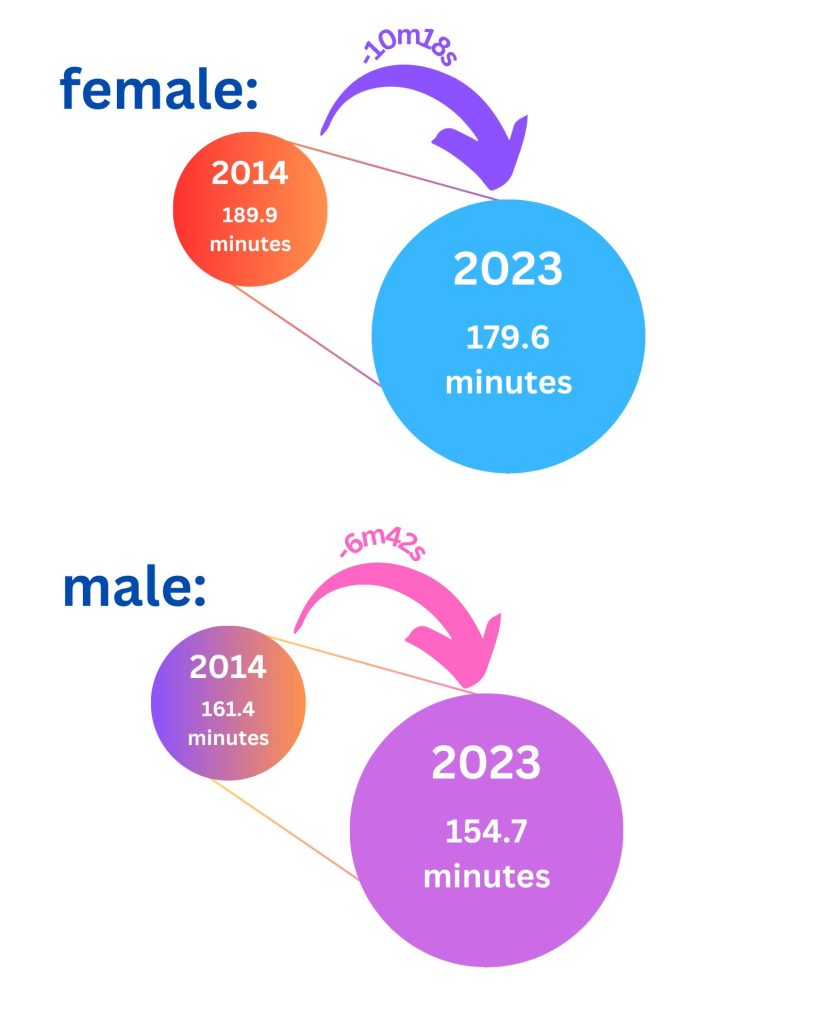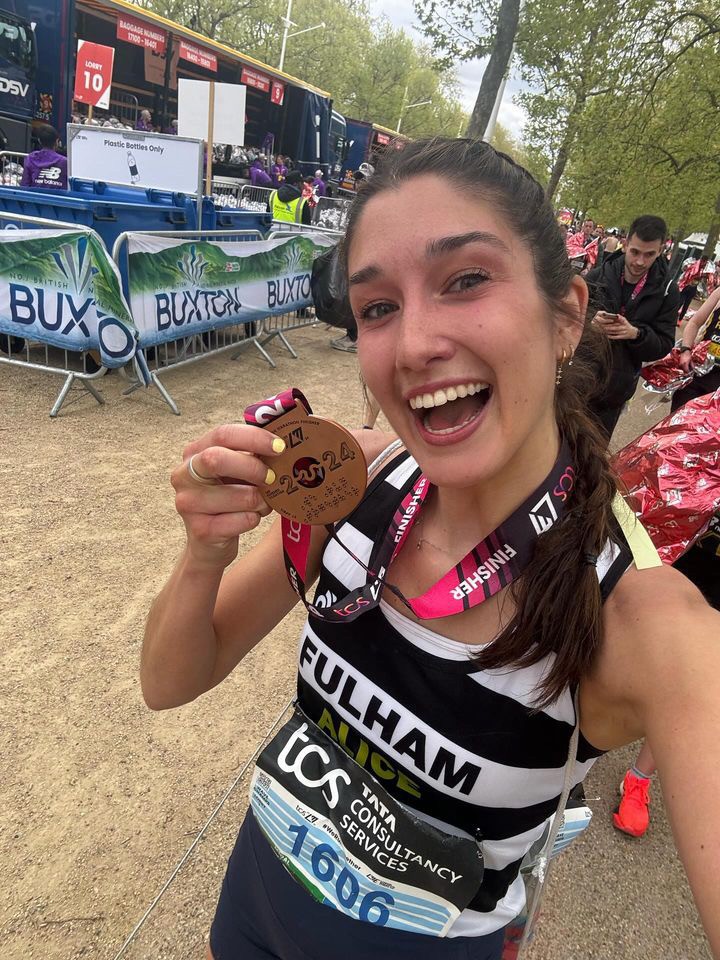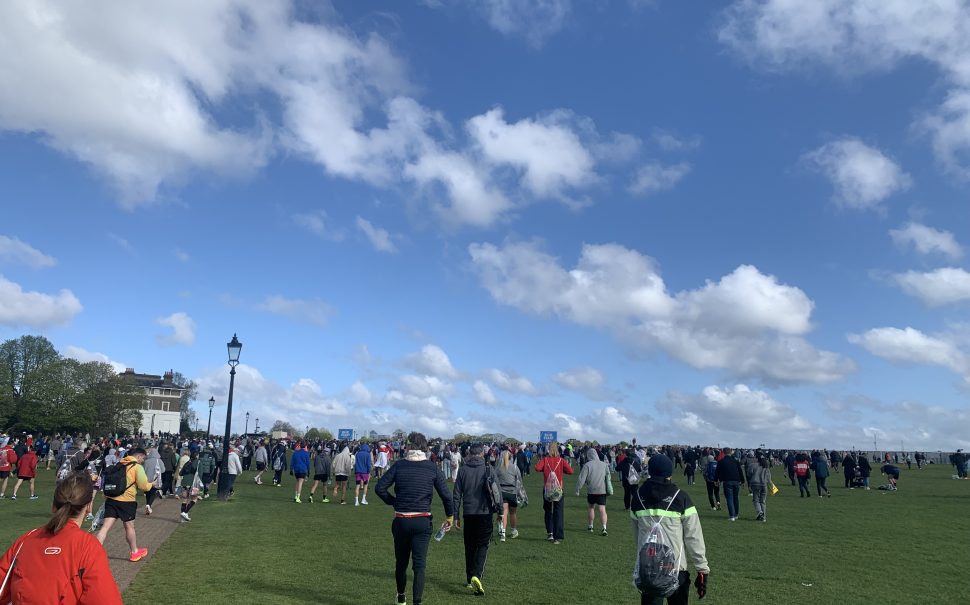Results from the previous ten London Marathons show the female category is progressing faster than the male.
This year’s London Marathon ago saw a record-breaking number of participants, with more than 50,000 people taking part in the annual event.
And the average speed of top runners is only getting quicker with every year according to data collected from TCS London Marathon.
The figures show a clear decrease in the average finishing time of the top 25 non-professional runners aged 18 to 59 from the two sex categories.
With the exceptions of the results from the hottest marathon on record in 2019 and the virtual marathon (thank you Covid-19) of 2020, almost each year has been quicker than the last.
There is an unmistakeable steep drop after 2020, a potential explanation being that people had been running during the lockdowns and were now benefitting from those months where other forms of exercise were not really an option.
A closer inspection of the data shows the female category, when compared to the male, is getting faster… faster.
With a difference of 10 minutes and 18 seconds compared to the male six minutes and 42 seconds between the two groups’ 2014 and 2023 marathon finishing times, the female group has progressed almost twice as quickly as the male.

Civil servant Alice Malin ran the gruelling 42.2 kilometre run in under three hours (two hours, 58 minutes and 52 seconds), meaning she did so with a very respectable pace of four minutes 14 seconds per kilometre.
This was her second marathon, having picked up running as a hobby in 2019 whilst studying for a history degree at The University of Bristol.
After encouragement from a friend, she tried to run five kilometres, but when she was entirely out of breath from what she thought would be a simple and pleasant park run, Alice had a new challenge in her sights.
With a newfound drive to get fitter and a goal of completing five kilometres, she included running into her weekly routine and ended up sighing onto a half marathon in December that year.
The 25-year-old thinks that, like most sports, running has traditionally not been the friendliest environment for women, and that can impact their performance.
She cited the fact that at the start of races, men are at the front of the group right at the start line, meanwhile women are at the back.
She said: “That’s a real bugbear of mine, because if you’re shooting for first woman or second woman then you should be right up there on the start line and not at the back behind all these men.”
However, Alice also highlighted a crucial point separate from just the finishing times and paces.
Like plenty of other people, she had a lot of extra time on her hands in 2020, and realised running was a great outlet for the anxiety and stress from the pandemic and spending all her time at home.
She said: “I found those runs really helped my mental health, and I think although I ran in 2019, during Covid was where I really started to love it.
“Not only was I enjoying the runs more because I was getting fitter and felt myself improving, but I was really in love with the mental benefits and how good I felt during and after.”
Alice joined Fulham Running Club in February 2022 after signing up to the London Marathon for the first time.
She thinks that running can be a really social sport in spite of the preconceptions surrounding it, and said the community and support she found in her club has been a great benefit to her life, not just her running.
Something she felt herself having to overcome when finding her place in the sport was a feeling of embarrassment if anyone were to see her running.
She hopes the improving running times for the female category prove they are overcoming whatever barriers and insecurities female runners may face and are finding the sport to be more inclusive.

In fact, speak to anyone gearing up to run in the London Marathon and you are sure to find people running for all sorts of reasons.
A key one is raising money for charity.
This year’s marathon broke of the fundraising world record by raising over £67m – the most money for charity than any other single-day event in history.
Accountant Michael Chapman, 25, ran for Bowel Cancer UK after losing his dad to the disease in 2014.
He said: “I put the London Marathon on the telly last year, and I just found it really inspiring and signed up through the ballot.
“My dad passed away from bowel cancer ten years ago, so I thought it was quite fitting on the tenth anniversary to run for him and to raise money for such a big cause.”
It was also the first marathon for Michael’s friend, Sophie Hammond, 27, who was fundraising for REDRESS, an organisation which pursues legal claims on behalf of survivors of torture.
Sisters Nicola MacEwen, 42, and Michelle Warwick, 45, travelled from the United States just to take part in the 43rd instalment of the event.
Professor and sustainability consultant Nicola said: “I only started running eight years ago, Michelle inspired me.
“I had just had babies and needed something for myself.
“It’s time away and something to do for me that’s not for anybody else – it’s like free therapy.”
This was Nicola’s second marathon of the week, having run the Boston Marathon just six days earlier.
Health teacher Michelle has been running since she was 12, and although this was their first time taking part in the London run, both sisters have travelled to numerous others including Paris, Berlin, and Vancouver.
The London Marathon is full of stories of people running out of loved for family members, friends, and themselves.
Clearly, the finishing times are not the be-all-and-end-all, but they do show women in particular putting more effort into something they enjoy and get a lot of benefit from, be that so they can run five kilometres or to just take a pause from daily life.
Featured Image Credit: Myriam Page





